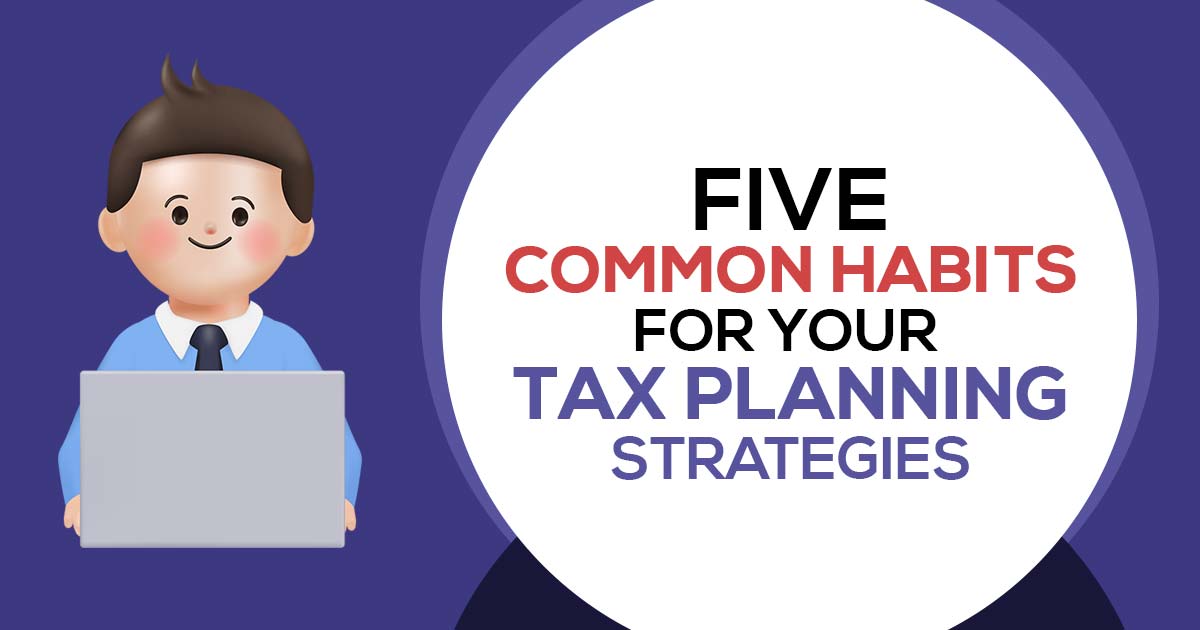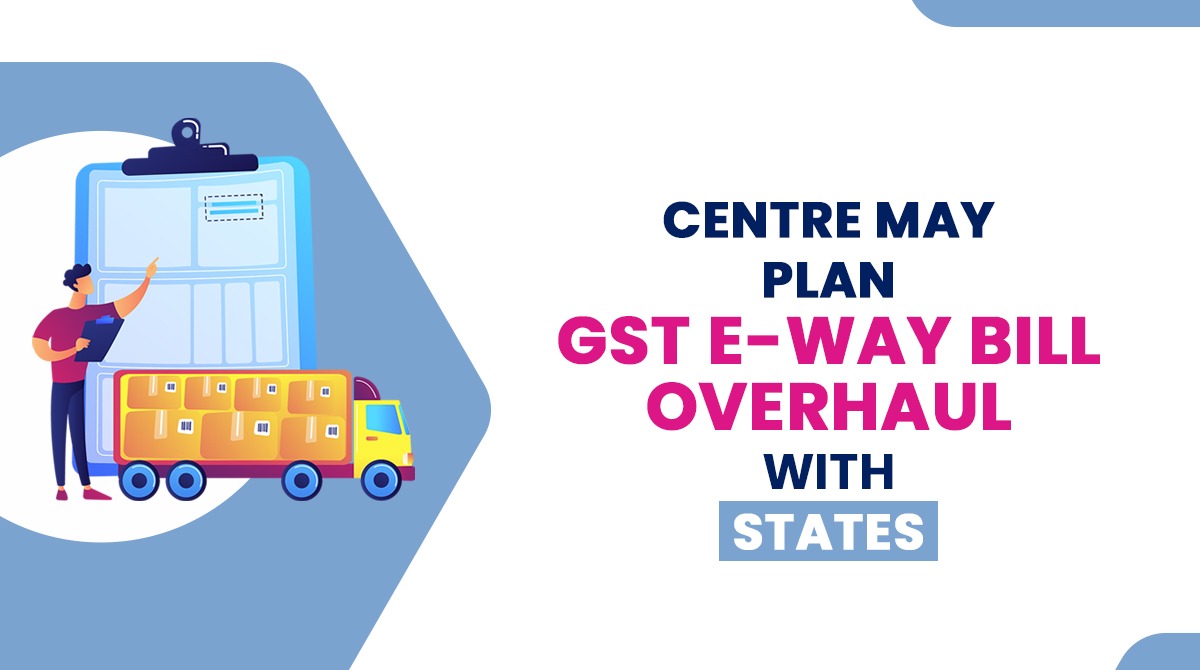
Learn how can you improve your tax planning strategies with these important 5 essential habits. By using these habits, you can get a better understanding of all your income tax laws and regulations, optimize your tax deductions and credits, and reduce your tax burden.
If you believe that tax planning solely revolves around settling taxes or handling returns, and is something only tackled towards the end of a fiscal year, it’s time for a rethink. Tax planning isn’t just an end-of-year rush; it’s a crucial and wise component of your wealth-building strategy.
Understanding taxes often causes confusion and stress, yet when strategically approached, they can actually streamline your finances. It’s a misconception to think that only high earners—those with significant net worth or hefty salaries—need to focus on tax planning. The reality is that anyone accountable for taxes should prioritize tax planning, and that encompasses virtually everyone.
Best Five Common Strategies for Your Tax Planning
Here are the top 5 most common habits that you can adopt to enhance your tax planning strategies:
1. Not Ignore I-T Section 80C
Under Section 80C of the Income Tax Act, 1961—arguably the most widely known provision—there exists a range of options aimed at curbing tax obligations. These provisions allow for tax deductions by investing in instruments like the Public Provident Fund (PPF), Employee Provident Fund (EPF), National Savings Certificate (NSC), home loans, pension funds and schemes (such as the National Pension Scheme), tax-saving fixed deposits, among others. Leveraging these deductions can potentially reduce one’s tax liability by up to INR 1.5 lakh.
Given that many of these provisions involve long-term commitments (some even with minimum lock-in periods), aligning tax planning with your financial objectives becomes imperative. This approach not only aids in tax savings but also facilitates wealth accumulation, establishing a corpus for future stages of life.
2. Delay Tax Planning to the Last Minute
Delaying tax planning until the last moment poses the danger of inadequate tax savings. It can prompt taxpayers to unintentionally commit to costly propositions like investments or loans that don’t necessarily align with their broader financial objectives.
Avoid associating tax-saving instruments with short-term or unplanned goals. While quick solutions might offer immediate tax benefits, they might not hold much value in the long-term perspective.
3. Examine Your All Salary
Examining your paycheck closely can be a beneficial practice for the salaried individual engaged in tax planning. Comprehending the various constituents constituting your salary empowers you to assess the potential opportunities available for minimizing taxes through lawful exemptions. For instance, while house rent allowance stands as a widely claimed exemption, other components within your pay structure could also contribute to augmenting your take-home earnings.
Exploring elements within your Cost to Company (CTC) such as medical reimbursements, leave travel allowances, educational or learning allowances, meal or food coupons, and other applicable allowances plays a pivotal role in diminishing tax liabilities. Understanding the spectrum of allowances provided by your employer and, if needed, considering a restructuring of these components during performance evaluations or salary revisions could significantly reduce your taxable income within the parameters of the law.
4. Use of I-T Section 80C, 80D, 80E and 80G
While leveraging Section 80C serves as a solid beginning, it shouldn’t mark the conclusion of your tax planning endeavours. A savvy approach to tax planning encompasses investment strategy. Once you’ve made the most of the tax benefits from standard deductions and long-term plans under Section 80C, it’s prudent to explore additional sections within the Income Tax Act that can further optimize your overall tax burden.
Exploring avenues like Section 80D (offering deductions on health insurance payments for self and family), 80E (deductions on education loans), 80G (deductions on charitable contributions), and others presents opportunities to significantly reduce your total tax liability. Therefore, expanding beyond Section 80C allows for accessing various tax-saving investment options.
Moreover, diversification offers the added advantage of mitigating investment risks to a considerable extent. Spreading your earnings across different asset classes and diverse schemes within the same asset classes can help minimize overall investment risks in the long run.
5. Closely Looking for Financial Planning
Tax planning isn’t a standalone task; it’s an integral component of your financial planning. Therefore, it’s crucial to kick-start tax planning concurrently when structuring your finances-whether it’s for the immediate year or a longer-term strategy. Adopting a comprehensive perspective necessitates examining your finances from a broader standpoint: your income, tax bracket, current tax obligations or potential liabilities, existing investments, future investment aspirations, and overarching financial objectives.
Important: How Are Tax Payments Benefiting Online for Taxpayers
Gaining a clear understanding of your financial position empowers effective planning for what lies ahead. Selecting the appropriate financial tools becomes paramount to ensure you’re not overpaying in taxes. In essence, your tax planning commences by assessing your financial landscape during the financial planning phase; both work in tandem to fortify your fiscal outlook.
Need of Paying Tax for Taxpayers
India, with its significant population, relies on taxation as a means of income redistribution by the government. Tax payments constitute the primary revenue source for the government, funding the services it delivers to citizens.
Taxes play a crucial role in supporting welfare programs that aid various sectors of society. They contribute directly to national healthcare and education, sustaining government-run schools and hospitals that offer services at subsidized rates due to tax funding.
Every tax serves a distinct purpose and is earmarked for specific motives.
Types of Commonly Paid Taxes
- Excise Duty: Excise duty is a tax levied on goods that are produced within the country.
- Road tax: On purchase of a new vehicle road tax is to be levied.
- Custom duty: Custom duty is to be levied on goods when they are transported internationally.
- Income tax: An income tax is a tax that the government levies on individuals and businesses on their annual income and profits earned respectively.
- GST: The Goods and Services Tax (GST) applies to the supply of goods and services, serving as an indirect tax system.
- Property tax: The amount paid by the landowner to the local government entities or municipal corporations is said to be the property tax.
- Sales tax: On the receipts from the sale or for the sales of the goods and services the sales tax is to be levied.
- Corporate tax: Corporate tax is levied on the profits made via the organization.
- Professional tax: Professional tax is a direct tax that the employer deducts from an employee’s gross salary.
How Can I Simplify the Process of Paying My Taxes?
Paying taxes may seem daunting, but filing your Income Tax Return (ITR) on schedule can bring multiple benefits and simplicity. ITR filings are an annual affair, running from April 1 to March 31, and adhering to the due dates allows taxpayers to carry forward any losses to the following year.
Submitting your ITR on time not only helps avoid interest liabilities but also prevents incurring a 1% interest charge for each month post the due date. Furthermore, filing beyond the deadline may attract late fees amounting to INR 10,000.
To ensure a smooth process, taxpayers should maintain a vigilant eye on their income, relevant tax documents, and records of credits and deductions, and diligently meet the deadline. Preparing all necessary documentation before e-filing your ITR is an excellent strategy to streamline the tax-paying process.
The process of filing your taxes, specifically your Income Tax Return (ITR), can be completed online by adhering to a few straightforward steps:
- Step 1: Proceed to e-filing income tax return portal https://www.incometax.gov.in/iec/foportal/
- Step 2: Log in with your credentials.
- Step 3: On the homepage tap on the e-file and then file income tax return tab.
- Step 4: Select the assessment year and tap on the Continue tab.
- Step 5: Choose the online mode select the applicable taxpayer category and proceed.
- Step 6: Select the ITR that applies to you and proceed with it.
- Step 7: Choose the reason you are filing an ITR.
- Step 8: Add your banking details.
- Step 9: You will be directed to a new page that has details that are already filled in. See the details and validate them.
- Step 10: Verification is mandatory once you verify the returns, send the hard copy to the income tax department.
Final Words
Commencing tax planning early presents numerous advantages, although it’s never too late to begin. Tax planning can appear daunting, overwhelming, and time-intensive. Hence, consider consulting a professional such as a consultant or auditor to gain a clearer understanding if needed. Yet, conducting your own thorough research, even if it requires time, proves valuable since taxation impacts everyone directly.
Being a savvy taxpayer is key. While delaying until the eleventh hour might aid in immediate tax savings, it’s important to note that it doesn’t equate to prudent tax planning.









